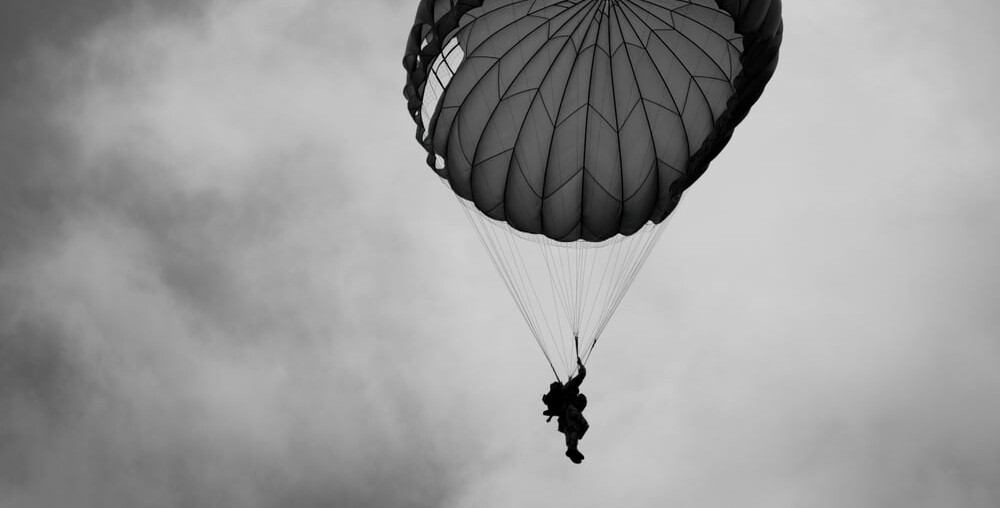


In my recent American Spectator article, I recall learning about heroes throughout childhood, focusing largely on the simple, “everyman” heroism that emerges among comrades amidst the pounding misery of large-scale infantry combat. Since Saturday morning, I’ve found myself reflecting on the remarkable heroism of those Israelis who, confronted by surprise with a monstrously barbaric assault, found ways to help each other despite hopeless odds. In the coming days, as Israel confronts the depravity of Hamas, Hezbollah, and the Iranian regime, we will undoubtedly see more heroes emerge.
READ MORE from James H. McGee: There Is No ‘Moral Equivalence’ Now
There is, however, another kind of heroism, one that has increasingly fascinated me over the years. This is the heroism of those who go deep behind enemy lines, far from any measure of support or hope of succor in the event of disaster. This is the heroism of performing crucial missions while knowingly accepting overwhelming odds, operating where even a single misstep can prove fatal, where every scant waking moment means living with a special kind of creeping fear — and overcoming it to get the job done.
We’ve just lost, at the age of 100, one such hero, a World War II veteran by the name of Ellsworth Johnson. Johnson passed away at his home in Zeeland, Michigan, on Sept. 30, a quiet ending to what had been an eventful life. Trained as a medic, Johnson volunteered to join the Office of Strategic Services (OSS), the WWII agency that served as the direct ancestor for both the CIA and the Army Special Operations Command.
When we think of OSS missions today, we tend to envision lonely spies and the famous Jedburgh teams, interallied three-man teams (U.S., British, and French) dropped into France to train, supply, and lead the operations of the French resistance. William Colby, later director of central intelligence from 1973 to 1976, parachuted into France in August 1944 as a member of Jedburgh team “BRUCE.” Aaron Bank, the “godfather” of the U.S. Army Special Forces, was also a Jed, as was the famous political columnist, Stewart Alsop.
Johnson, however, served with a less famous but equally important component of OSS special operations, the Operational Groups. These were larger teams, numbering typically a couple of dozen members, who were trained to conduct what our present generation of special operators characterizes as “direct action” missions. Taking out Osama bin Laden represented perhaps the most famous recent such example, but during WWII there were many such. Johnson, only 21 years old and trained as a medic, parachuted into France in August 1944 on a mission in support of the invasion of southern France — the “second D-Day.” They were instructed to capture a strategically located hydroelectric plant, which was accomplished successfully. Afterward, they harassed German rear areas for nearly a month before being relieved by advancing American troops.
Later, Johnson joined other OSS operatives in China, helping to train Nationalist Chinese forces for an anticipated effort to throw back the Japanese, an effort made redundant when Hiroshima and Nagasaki brought the Japanese to surrender. As his New York Times obituary recounts, Johnson returned from service, still only 22 years old, and built a solid civilian life for himself, earning an associate degree, marrying a lifelong partner, raising three children, and enjoying seven grandchildren and nine great-grandchildren — by any reckoning, a life well-lived. Only a month before his passing, he was honored by U.S. Special Operations Command as the last survivor of the WWII OSS Operational Groups.
“Last survivor” is becoming an increasingly common term when it comes to veterans of WWII — “last survivor” of this unit, or that battle, or some other notable experience. Although Tom Brokaw apostrophized them as “the greatest generation,” my experience of these men (and women) has been that they view this appellation with a quiet skepticism. They were a generation brought up amid the challenges of the Great Depression, with fathers who themselves had a claim to being a “greatest generation,” having fought the “war to end all wars.” But however much they may have regarded themselves with modesty, we, their descendants, would do well to honor their memory and try to live up to their example. (RELATED: The Greatest Generation Is Leaving Us)
One of my friends from this generation once said to me: “If we were the ‘greatest generation,’ it was simply because of the greatness of the challenges we faced. We didn’t see ourselves as great but simply as called upon to do our best, regardless of what was asked of us.” We in the U.S. have, in recent years, taken something of a holiday from history. Aside from the relatively small percentage of the population that has fought our wars of the last three decades, we’ve proceeded blithely, enjoying our comforts and, depressingly, wallowing in luxury — not just material luxury, but in luxury beliefs, political and cultural silliness that comes with the sense that nothing very bad can ever happen to us as a nation.
We awakened, briefly, after 9/11 and then sank into silliness once again. But look around; look at the war in Ukraine, the threat of war with China — look, above all, at the horrors inflicted on Israel. The time for complacency and self-indulgence is surely past. Instead, as great challenges emerge, we will once again have to find a way to do our best. We will have to find within ourselves the qualities exemplified by Mr. Ellsworth Johnson and so many others like him.
Rest in peace, Mr. Johnson; your peace is well-earned.
James H. McGee’s 2022 novel, Letter of Reprisal, tells the tale of a desperate mission to destroy a Chinese bioweapon facility hidden in the heart of the central African conflict region. Not incidentally, it is also a meditation on the nature of heroism as exemplified by an international team of special operators. You can find it on Amazon in both Kindle and paperback editions, and on Kindle Unlimited.
